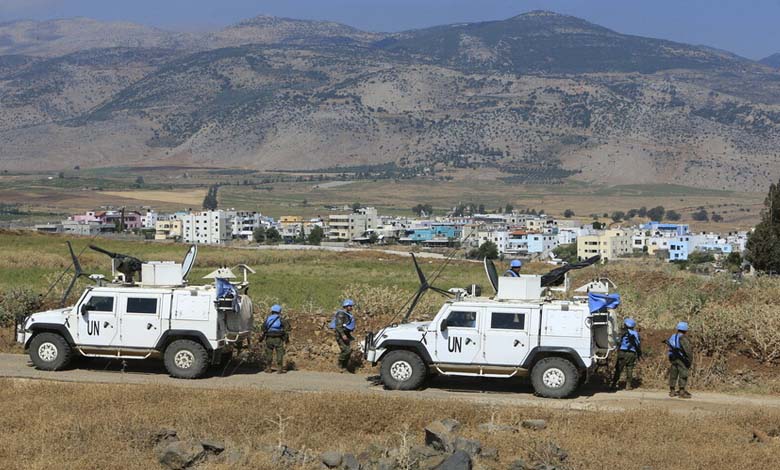UNIFIL condemns Israeli bombing attack near its soldiers

The United Nations Interim Force in Lebanon (UNIFIL) condemned on Wednesday an Israeli attack in which drones dropped four bombs near its soldiers, describing the incident as “one of the most serious” assaults against its forces since the ceasefire took effect last November.
In a statement, the peacekeeping mission reported that on Tuesday morning the Israeli army had “dropped four bombs close to UNIFIL peacekeepers who were working to remove roadblocks obstructing access to a United Nations site.”
-
Disagreements Surround the Renewal of UNIFIL’s Mandate: A Decisive Security Council Vote
-
Between Washington and Tel Aviv… Is UNIFIL nearing the end of its mission in Lebanon?
UNIFIL emphasized that this was among the most dangerous attacks targeting its personnel and assets since the November cessation of hostilities agreement, which ended more than a year of clashes between Israel and Hezbollah.
It clarified that the bombing occurred despite the Israeli army being informed in advance of the ongoing clearance operations in the area southeast of the village of Marwahin.
According to the report, one bomb landed only twenty meters from the soldiers, while three others fell about one hundred meters from UN personnel and vehicles, forcing the suspension of operations for their safety.
-
A step that could turn Lebanon upside down… Will “UNIFIL” leave?
-
Death and injury of Lebanese soldiers in southern explosion: Israel reacts
This incident forms part of a series of repeated attacks against UN peacekeeping forces in southern Lebanon. Last October, during Israel’s ground operation in Lebanon, UNIFIL positions came under repeated fire, and two Israeli tanks broke through one of its base gates, injuring several peacekeepers.
On October 10, UNIFIL announced that its headquarters and positions along the “Blue Line” had come under fire from the Israeli army, wounding two peacekeepers as a result of artillery shelling. On October 16, an Israeli tank targeted one of the mission’s observation towers near the town of Kfarkela, causing heavy damage to the site.
-
Amnesty International calls for investigation into alleged Israeli war crimes in southern Lebanon
-
Lebanon Dismantles Hamas and Jamaa Islamiya Training Camp
Over the decades, the UN force has been the target of numerous deadly attacks, the most notorious being Israel’s direct bombing of its headquarters in Qana in 1996, which killed more than one hundred civilians who had sought refuge inside the base.
Several of its soldiers have also been killed in separate attacks, including bombings that struck its patrols in 2007 and 2011.
In recent years, UNIFIL has also faced field tensions with some local residents in the south, which at times escalated into assaults on its patrols and restrictions on their movement, prompting the United Nations to warn against undermining its mandate.
-
In Response to Aoun.. Israeli Defense Minister Sets Condition to Halt Strikes on Lebanon
-
Neutralizing Beirut: Lebanon Seeks Understanding with Israel after Saturday Escalation
The ceasefire agreement of last November, reached after violent confrontations between Israel and Hezbollah, stipulated a halt to hostilities, the deployment of the Lebanese army in the south alongside UN forces, Hezbollah’s withdrawal beyond the Litani River, the monopoly of arms by the state, and the withdrawal of Israeli forces.
However, the Israeli army still occupies five strategic positions along the Lebanese border, refusing to withdraw until Hezbollah is fully disarmed.
-
Lebanese Army Uncovers Israeli Spy Devices Hidden with Precision
-
Israeli Airstrikes Do Not Exempt Sunni Towns in Lebanon












